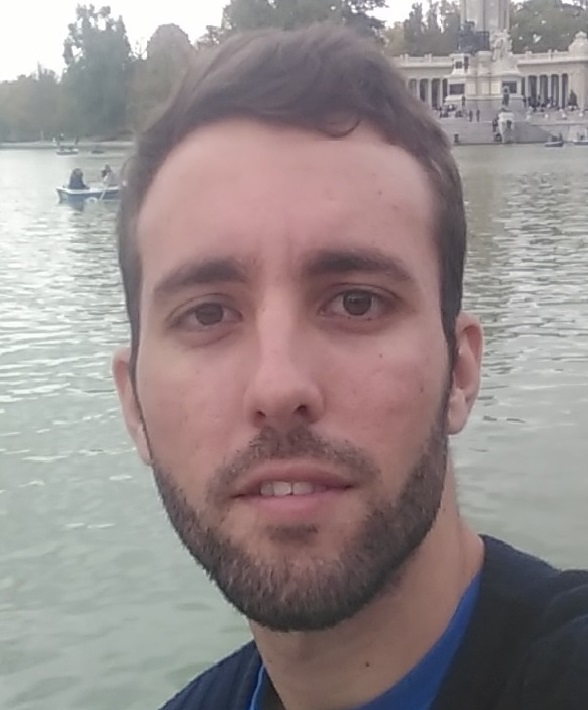
ESR 1
David Alejandro Urquiza Villalonga
New Scheduling Algorithms for Interference Management in Small Cells at millimeter-wave frequencies.
Research Gate: https://www.researchgate.net/profile/David_Urquiza_Villalonga2
Biography
My name is David Alejandro Urquiza Villalonga and I am from Havana, Cuba. I have always been a very passionate person about technology and a few years ago I found that signal processing and wireless communications were my real passion. For that reason, I studied Telecommunications and Electronic at the Technological University of Havana (CUJAE). In my free time I enjoy going out with friends, swimming, watching TV and reading.
I have been member of research projects since I was a second-year student. I have experience as software and hardware developer for mobile communication applications in the field of digital signal processing for Software Defined Radio Technology. I also have had a great deal of research experience in communication theory and cooperative communication systems. In addition, I have worked as a Mathematics Professor at CUJAE university.
At present, I am a PhD student under supervision of Dr. Maria Julia Fernandez-Getino as part of the TeampUp5G project. My research is about the design of new scheduling algorithms to achieve interference management and cancellation in small cell heterogeneous environments working at millimeter wave frequencies.
Objectives
The goal of this project is to design scheduling algorithms that combined with the pre-coders existing in the literature and also being designed by other ESRs, will achieve interference management and cancellation in small cell heterogeneous environments working at mmW frequencies. In particular, hybrid digital-analogue precoding techniques requiring little Channel State Information (CSI) and data sharing will be considered and the scheduling will decide what users to align and how the resources should be shared among the different tiers of the communication in heterogeneous networks with coexistence of small cells and macro-cells. The problem of ensuring continuous coverage under the challenging propagation characteristic of mmW will be tackled by the resource allocation at the different tiers.
Expected Results
New scheduling algorithms will be developed for contributing to increase the capacity of future networks where small cells are densely deployed and mmW frequencies are used to take advantage of the wide spectrum availability. The achieved performance will be analyzed by system-level simulations and a selected set of techniques will be prototyped for a proof of concept.
Institutions and Supervisors
- Main Institution: Universidad Carlos III de Madrid
- PhD Enrollment: Universidad Carlos III de Madrid
- Academic Supervisor: Dr. M. Julia Fernandez-Getino (Universidad Carlos III de Madrid)
- Industry Supervisor: Slawomir Pietrzyk (ISW)
Secondments
IS-Wireless (ISW) (from 1st February 2021 to 30th July 2021)
IT-Aveiro (from 1st September 2021 to 30th December 2021)
